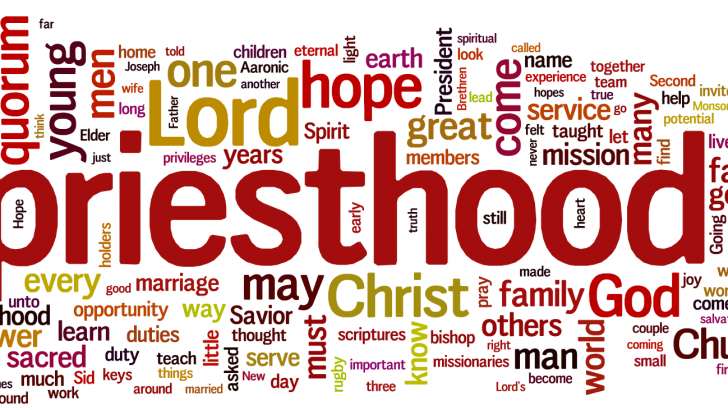Mags Gargan talks to the Director of Vocations Ireland about how religious life is once again finding its voice
Religious life is changing, and has to change, but the call from God will always remain, and it is the role of Vocations Ireland to help people to discern that call.
Vocations Ireland is an umbrella group that supports the vocations directors from all the different religious congregations and societies in Ireland. It was founded in 2002 when separate vocations associations came together to pool resources and offer a supportive focal point for both vocations directions and those interested in religious life.
Margaret Cartwright became Director of Vocations Ireland in November 2014. Originally from Glasgow and formerly a member of the Franciscan Missionaries of Mary, Margaret settled in Ireland when she met her husband Sean in Dublin.
Her first year was mainly spent listening and getting a sense of the organisation, but since the start of this year Margaret has been a real driving force behind a number of initiatives that are shining a light on vocations nationally and tapping into a new enthusiasm around religious life.
“There is a lot more energy around vocations,” Margaret says. “Pope Francis’ call to ‘wake up the world’ was a great initiative and it has helped people to waken up. We also have to help young people to wake up too. We have all gotten comfortable in our own ways and it is good to hear someone say is there something else we could be doing or a new way to do this.”
Grant
2016 started off on a high with the successful application for a generous grant of $290k (€268k) from the Conrad N. Hilton Foundation, which Margaret says has been “key for any of the work we’ve done this year”. “We are self-funding in a sense, the only money we have coming in is subscriptions from the congregations which would have dropped over the years as numbers dropped. So the funding was key for us to start rolling out training programmes, promotional programmes and upgrading promotional materials. Their partnership has been extremely important to us,” she says.
The focus for the year so far has been on training and upskilling of vocations directors. Margaret says this has to be a priority for any business in order to meet modern demands and it is no different for those working in the area of vocations.
“When you look at the age profile of vocations directors they do tend to be in the older age category, so we have to look at how they are relating to young people and if they are in touch with the young people’s way of thinking.
“There has been a huge shift in the younger mentality and we need to be in touch,” she says. “Also the religious have been quite quiet in the last numbers of years, so it is to encourage them to relook at their strategies and what they need to do and what they need to change. The idea came from them that they need to upskill and I think that is a sign of a good company.”
Vocations Ireland has held training programmes for vocations directors focussing on dealing with the media and communicating through social media, it is also looking into a training programme for the preparation and delivery of creative liturgy, especially in relation to discernment and workshops on spiritual accompaniment.
Priority
Another priority for Vocations Ireland has been highlighting vocations stories and raising public awareness of the fantastic work of those in religious life. “Again that is coming from a change in direction and the fact that religious are no longer key in hospitals and schools and places like that, so young people are not getting the opportunity to get to know them,” Margaret says.
“That is the feedback that I am hearing at careers fairs. Young people say ‘I don’t really know any nuns. I’ve never met one’. But they are used to seeing their priest in the parish. We need to get the stories out there.
“Most people wouldn’t know the stories of the founders of these orders, even though many would have gone to a religious school. It is about getting the stories out there and giving young people the opportunity to meet and chat to religious.”
Bringing together young people and those in religious life in an informal setting was the inspiration behind the Sisters Cafe.
This is a pop-up cafe which opens its doors at different locations offering young women the opportunity to meet religious sisters and hear about the role and impact of their work on a one-to-one basis.
Youth
Vocations Ireland is also working collaboratively with the Dublin archdiocese and the Irish Missionary Union (IMU) on a new youth programme in St Paul’s Church on Arran Quay and it has begun setting up Samuel groups which help young people to discern where to go in life.
The organisation applied and has been accepted on the Vocation Ambassadors programme run by the National Religious Vocations Conference (NRVC) in the US.
This offers three people – a vocations director, someone working in communications in the area of vocations and a young person – the opportunity to attend a course which aims to equip them with media and communication skills to promote religious life and to develop a collaborative communications strategic plan.
“The idea is that they will go to do the training and come back to present the training here. Train the trainer if you like, to spread it out more,” Margaret says.
She is also looking into joining Vocations Match, offered by the Vision Vocation Network, which matches up people who might think they have a vocation with a suitable congregation that meets their interests.
“Some people might say I don’t want to be a contemplative or I definitely don’t want to go on the missions, and others might say I might be thinking about a mixture. So they answer a very comprehensive questionnaire and they are guided to the particular congregations that they are most suited to.
“Any congregation attached to Vocations Match would be sent an alert that someone is interested and they can follow up. It is working very well in US and UK, so we have decided to become part of it,” Margaret says.
Challenges
When asked what are the biggest challenges she faces in her role, Margaret lists two main areas – “finding ways of communicating with young people about religious life and also the challenge of getting religious to see there is a still a value there”.
“I think some smaller congregations may not see themselves as continuing, but while certain congregations many not continue the concept of religious life will continue.
“But I also think it will change and it has to change in light of the way society is going. If you look through Church history you will see all the way through that certain aspects of religious life were very prominent, then dwindled, changed and adapted as it went along,” she says.
“But at the end of the day religious life is a call from God and that call will always remain.
“We have to look and see in what way is God calling people today and how we can respond to that call.”


 Mags Gargan
Mags Gargan
